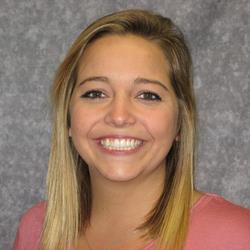Services in Outpatient Settings
Outpatient services come in many different shapes and sizes. You can find speech language pathologists (SLPs) working in various community settings with people across the life span on their communication and swallowing needs, from young children to older adults.
Did you know?
Speech-language pathology services are often provided to people one on one, but some clinics or practices gather groups together. This allows people of all ages to practice skills and receive peer support
Who:
SLPs work with children and adults of all ages, although many clinics specialize by age group and/or clinical diagnosis. Sometimes, families of infants, toddlers, or school-aged children may seek services if they don’t qualify for early intervention or school services—or they might just prefer a private SLP of their choice. Adults may see SLPs in outpatient settings as well as through home health and inpatient/residential settings (depending on insurance coverage).
What:
SLPs work with children and adults who have speech, language, cognitive, and swallowing disorders. They also help people modify their voice or communication style. Here are some areas where SLPs help clients and patients:
- Speech—People with speech problems may not say sounds clearly or smoothly. This may make it difficult for others to understand them.
- Language—A person with a language disorder may have problems with expressing themselves, understanding others, and reading and/or writing.
- Cognition—This can involve difficulties with attention, memory, problem-solving abilities, organizational skills, and judgment.
- Voice—Hoarseness, breathiness, pain, frequent coughing, and other problems with a person’s voice may result from medical problems or from overuse or misuse (certain professions, like teachers, musicians, and coaches, are at greater risk).
- Augmentative and Alternative Communication—People may need or choose to use other ways to communicate besides talking. These include no or low-and high-tech options such as pointing or gesturing, picture boards, and speech-generating devices.
- Feeding and Swallowing—Difficulties may include coughing or gagging during meals, food or liquid leaking from the mouth, or food getting stuck in the mouth or throat. These may occur due to preterm birth, developmental disabilities, medical conditions, and illness and injury.
- Gender-Affirming Voice and Communication—This may focus on pitch, tone, vocal health, nonverbal communication, and more.
- Communication Coaching—Some SLPs help with public speaking and communication style, which may include learning another accent.
Where:
Outpatient services occur within some universities and hospitals—as well as in private or group practices. Sometimes, SLPs work in a practice with other professionals such as audiologists, occupational therapists, and/or physical therapists.
How:
Doctors, family and friends, and others in the community may have recommendations for local SLPs. A searchable database of SLPs nationwide is available at www.asha.org/profind. Payment for services provided by SLPs in outpatient settings may come from private insurance, Medicaid, or Medicare. People may payout-of-pocket, as well.
Why:
A person’s ability to communicate effectively and eat safely are important to their livelihood and quality of life. SLPs can help people across the lifespan meet their personal goals and potential— guided by their preferences.
McKenzie Jensen, certified Speech Language Pathologist, provides speech therapy at Guthrie County Hospital. She provides treatments in the hospital, in private homes, as outpatients, and at nursing homes. McKenzie enjoys working with individuals of all ages. For further information call 641-332-3810.

McKenzie Jensen, MA CCC-SLP
Speech Therapist
Resource:
ASHA – LEARN MOREATWWW.ASHA.ORG/PUBLIC
